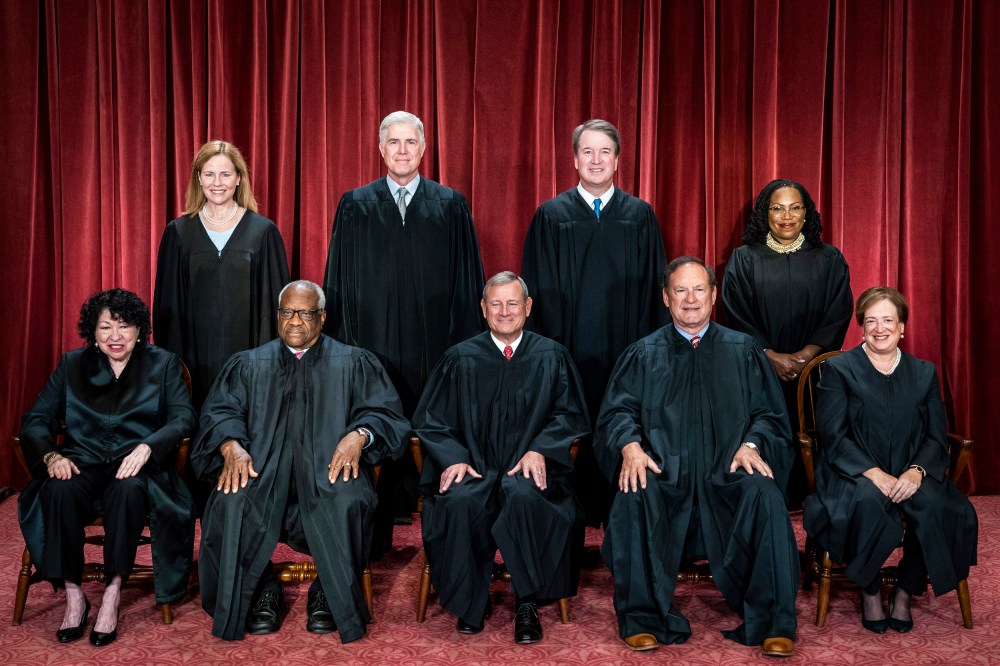The Supreme Court ruled on Monday that former President Donald Trump is immune from criminal prosecution for official acts made while president. This partial immunity decision — presidents do not enjoy absolute immunity for unofficial actions taken while in office — is a stunning example of institutional hubris and reckless judicial activism.
Instead of deciding specifically whether special counsel Jack Smith’s election interference criminal indictment against Trump is negated by presidential immunity, the court acknowledged a broader purpose. As majority author Chief Judge John Roberts pontificated: “[W]e cannot afford to fixate exclusively, or even primarily, on the present exigencies.” In plain English, the court refused to answer the question at the heart of Trump’s indictment, instead returning the case to the district court for further wrangling and debate.
Instead of deciding specifically whether special counsel Jack Smith’s election interference criminal indictment against Trump is negated by presidential immunity, the court acknowledged a broader purpose.
That’s a far cry from Roberts’ statement in his Senate confirmation hearing comparing his role to that of an umpire calling balls and strikes. The point of Roberts’ analogy was that justices don’t make rules, they are simply arbiters. But in this case, the court ignored the time-tested principle of judicial restraint. Instead, the court expanded the case’s scope beyond what either party had proposed.
On the other hand, we already knew this was likely going to be the outcome. When the court converted Trump’s motion for a stay into a petition for certiorari, the justices drafted an overly broad question to decide, writing: “Whether and if so to what extent does a former President enjoy presidential immunity from criminal prosecution for conduct alleged to involve official acts during his tenure in office.”
During the oral argument on April 25, Trump’s lawyer D. John Sauer acknowledged that the court had “expanded the question presented from what either of the parties submitted to discuss here.” This expansion directly led to the court’s inconclusive holding that a former president may be immune for some actions and not for others. In addition to prolonging the delay in Trump’s D.C. federal trial, the opinion now pushes the case back to Judge Tanya Chutkan. If the district court rules again that Trump is not immune, his lawyers will appeal again. And the seemingly endless loop of legal delays will continue.

The court’s self-important drive to announce an all-encompassing principle was underscored by Justices Samuel Alito, Neil Gorsuch and Brett Kavanaugh during oral argument.
The issue before the court was bigger than just one case, Alito intoned, because “whatever we decide is going to apply to all future presidents.” When Justice Department lawyer Michael Dreeben referred to the specific allegations of Trump’s case, Alito doubled down, saying, “As I said, this case will have effects that go far beyond this particular prosecution.”
Gorsuch appeared to be coming from the same viewpoint, stating, “I’m not concerned about this case so much as future ones too.”











